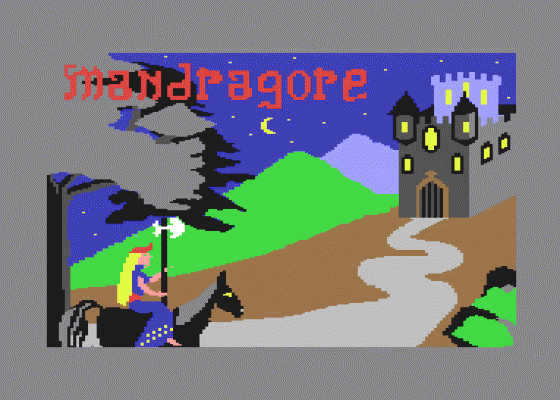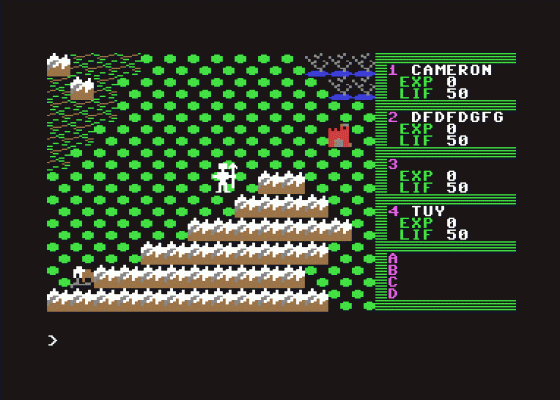
Zzap
 1st August 1986
1st August 1986
Categories: Review: Software
Publisher: Infogrames
Machine: Commodore 64/128
Published in Zzap #16
Mandragore
A number of my fellow wizards have experimented with the Ultima games from Lord British. These American imports allow you to create characters according to the old role-playing recipes of dexterity, experience, hit points and so on, and then rampage around the countryside collecting treasure, defeating monsters and generally having a good time.
The latest in the series, Ultima IV, is really a very complex program indeed, with vast acres of countryside to explore and numerous playing options. Unfortunately, it costs about forty quid. Now, however the French company Infogrames has set up a British subsidiary and is offering a similar product at a vastly reduced price.
Mandragore isn't as complex as Ultima IV, but it's still quite an impressive attempt. You can either define your own team by building up their characters and saving them on disk, or else you can load an old team or use one created for you by the computer. A team numbers four characters, to each of whom you must assign varying decrees of strength, intelligence, wisdom, constitution and dexterity. You also have to define their appearance, but I wasn't able to see what effect this had on the gameplay.

Other characteristics include sex, name, colour (for the display or the team-members on screen) and occupation. There are also five different races to choose from - Dwarf, Elf, Orc, Hobbit and Human.
Once you've got your team members sorted out, you move to the main Map display, which shows forests, water, mountains, and so on as rather crude character-block graphics. Pressing N, S, E, and W moves the display about the single central figure that represents the location of your team. At any time you may be attacked by monsters of many different varieties and, if this happens, the display changes to a close-up of the action, showing your different team members rather crudely depicted on-screen, with the relevant monsters hovering around the place and occasionally diving in to attack one of your luckless companions.
Alternatively, you may come across either a Chateau (yes, this is a French game) or a Village. Positioning your team-character on top of the symbol and then pressing C or V respectively, takes you into the location and again changes the display to show your four team-members on the spot and the various available exits.

The basic aim of the game is to explore the Chateaux and discover its secrets. In doing so you can get hold of treasure which you sell in between times in the villages. This enables you to buy goods and food in particular, as you need a lot of this to stay alive and on your best combat form.
Mandragore has created something of a sensation, mainly (I think) because it's French and one of the first big French hits to sell over here (apart from Get Dexter - which is soon to be converted to the Commodore by the programmers of Fairlight - on the Amstrad). It has some nice features, including music while you play and animated team-members who flicker across the screen when trying to open doors or take objects. There are also twenty-nine different commands, ranging from "LOOK" to "HYPNOTIZE". I did a lot of looking but never managed to hypnotize anyone and even, on one occasion, lost my life trying to do so.
Despite the nice features, however, the game presents a rather hammy image on-screen. The graphics are somewhat crude, the objectives not desperately interesting, and the whole game concept rather more ambitious than effective. Nevertheless, there's no denying that role-playing and character creation games like this one do have a strong appeal. Once you've gone to all that trouble to define a character and then order him (or her) through the most dangerous situations, you do become quite attached to it - so when Doobri the Dwarf (or whoever) finally bites the dust there is just the hint of a tear, in the corner of the eye...
...Okay, so there's nothing of the sort, but the point is that there is something slightly sentimental and involving about this sort of game. It's what gives them their appeal - but don't expect real state-of-the-art graphics and ultra-complex gameplay, 'cos you won't get them.
Other Reviews Of Mandragore For The Commodore 64/128
Mandragore (Infogrames)
A review
Mandragore (Infogrames)
A review by Fred Reid (Commodore User)



